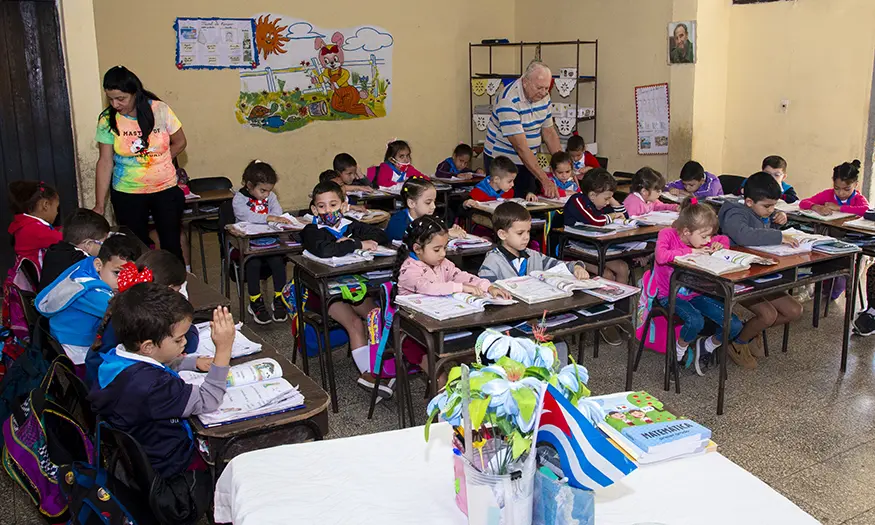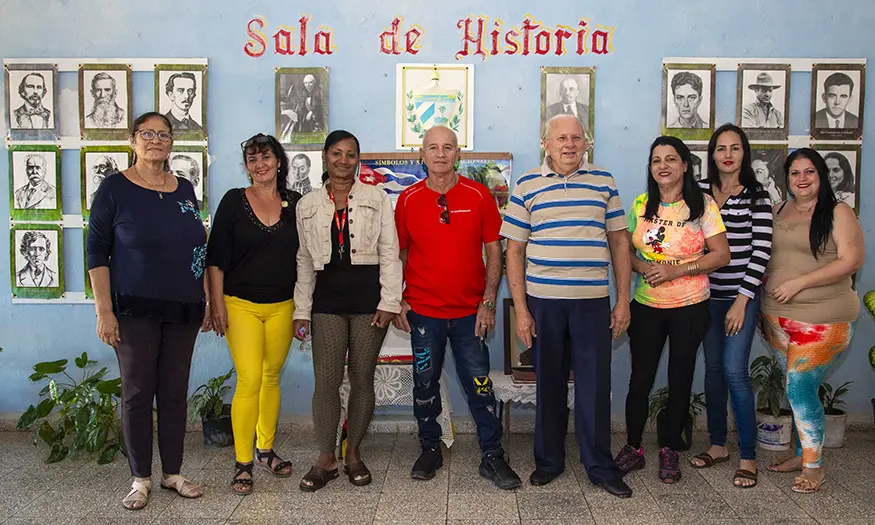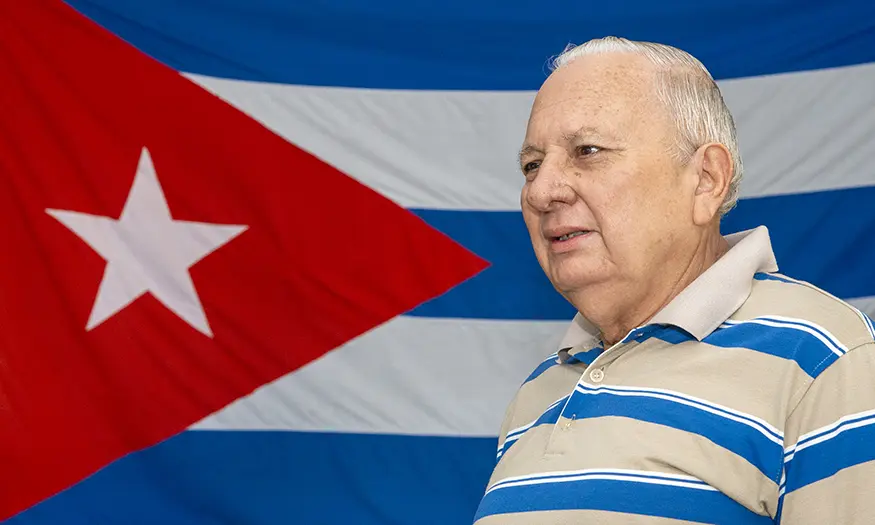The results obtained during fifty years of total dedication to the Cuban educational system constitute the best letter of presentation of the Illustrious Son of Holguin, Hector Manuel Carmenate Esparza, who for 27 years has been the director of Maria Antonia Bolmey Primary School, one of the largest in this province.
He says to me that his dream of becoming an educator began when he was a child, when he attended classes in Matatoros school, a rural area near the city of Holguin, where he was born in the year of the Granma landing and where, on November 23, 1958, eleven brave young revolutionaries of the 26th of July Movement were surprised and assassinated.
To make his dream come true, as soon as he passed the sixth grade he chose to join the “Oscar Lucero Moya” Teacher Training School, once a military regiment of the bloodthirsty Batista’s army in Holguin, graduating in 1973, when he had just turned 17 years old and having his first experience in front of students, precisely, in Matatoros and later in “La Edad de Oro” school, in Yareyal, also to the west of Holguin.
After those first experiences as a teacher, he went to “Fulgencio Oroz” National School of Cadres , in Ciudad Libertad, Havana, and in that way he began to work in management positions, passing through several semi-boarding schools (Rafael Freyre, Calixto García, Luís Peña Martínez, Juan José Fornet Piña and finally, María Antonia Bolmey, where he retired, but remains in the same functions as director, rehired).
Héctor Manuel, proud of his 50 years as an educator

Why such an intense love for teaching?
“Because very early on I understood José Martí, when he said that ‘to be a teacher is to be a creator’. I believe that I have fulfilled this precept, since I have contributed to the formation of many people, whose values and spiritual growth have exalted them and when they see me around, they are grateful. It is proven that anyone can teach, but only those who are a living gospel can educate.
“He also recognized the influence of those who participated in the Literacy Campaign (January 28 to December 22, 1961), when one hundred thousand young people went to the most remote places of the country to teach reading and writing to more than 707 thousand illiterate people. It is because of this great victory of the people that December 22, the date on which Cuba was declared by Fidel to be a territory free of illiteracy, was adopted as Educator’s Day”.
What about self-improvement, in the midst of that maelstrom of work?
“I passed several courses, such as the Latin American and Caribbean Institute, to fulfill an internationalist mission in the Ecuadorian Republic (2008 to 2010), as an advisor of the program ‘Yo Sí Puedo’, in Guamote, territory of the Ecuadorian province of Chimborazo, where I had a special, very singular experience.
“Because very early on I understood José Martí, when he said that ‘to be a teacher is to be a creator’. I believe that I have fulfilled this precept, since I have contributed to the formation of many people, whose values and spiritual growth have exalted them and when they see me around, they are grateful. It is proven that anyone can teach, but only those who are a living gospel can educate.
“He also recognized the influence of those who participated in the Literacy Campaign (January 28 to December 22, 1961), when one hundred thousand young people went to the most remote places of the country to teach reading and writing to more than 707 thousand illiterate people. It is because of this great victory of the people that December 22, the date on which Cuba was declared by Fidel to be a territory free of illiteracy, was adopted as Educator’s Day”.
What about self-improvement, in the midst of that maelstrom of work?
“I passed several courses, such as the Latin American and Caribbean Institute, to fulfill an internationalist mission in the Ecuadorian Republic (2008 to 2010), as an advisor of the program ‘Yo Sí Puedo’, in Guamote, territory of the Ecuadorian province of Chimborazo, where I had a special, very singular experience.
“In addition, I took courses to become a general teacher defectologist and I did a bachelor’s degree in that specialty, postgraduate courses in didactics, learning management, educational methods and computerization of primary education, as well as courses in political improvement. And, of course, I did my Master’s Degree in Educational Sciences.
“To such improvement actions, we can add the participation, as a speaker, in pedagogy events, the realization and presentation of a research on primary education in the province and was very active in science and technical forums.”
In these 27 years leading this Bolmey collective, how has the relationship with the workers, the teaching staff, the parents and the community been?
“The first thing is, leaving behind false modesty, to be a leader of the collective, with personal and professional example, using correct management methods and a proper link with workers, students, parents and community factors. Together we achieve many things that exalt us.

“These results of our center, which has 150 workers (including 115 teachers) and 786 students, contribute to the respect we have earned from the mass organizations, the grassroots body of the Association of Combatants of the Cuban Revolution (ACRC), the delegate of the People’s Power and the zonal nucleus of the Retired Party. They are present in our activities and we are linked to the community group”.
Héctor Manuel, proud of his 50 years as an educator
They also maintain magnificent relations with the ICAP delegation and the solidarity actions it promotes.
- Winners of the project “The Memory that Saves” - 30 de June de 2025
- Yaniset Mariela leads popular actions in Felton - 31 de May de 2025
- John M. Kirk, a love for Cuba that withstands difficulties - 15 de May de 2025

